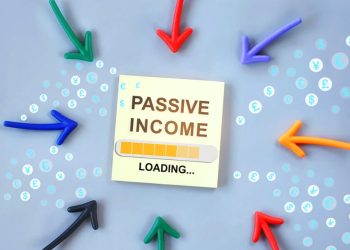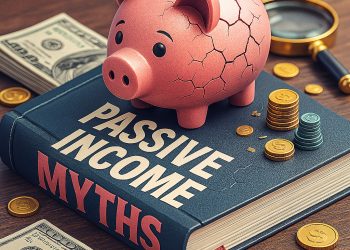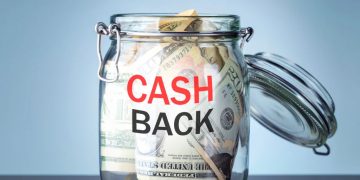If I Started Investing in 2025, This Is What I Would Do
Investing can feel overwhelming if you’re new, but it’s one of the most effective ways to grow your wealth and protect your money from inflation. In this guide, we’ll break down everything a beginner should know about investing in 2025, from why it’s important to how to pick your first stocks and funds.
Why You Should Invest
Investing allows your money to work for you, helping it grow faster than inflation erodes its value. For instance, if a cheeseburger cost $7 last year and $10 this year, inflation has reduced your money’s buying power. By investing, you not only grow your money but also protect it from losing value over time.
Two Ways Your Money Grows
- Ownership in Companies: Buying stocks, like Apple, means you own a small part of the company. As the company grows, your investment grows.
- Compound Interest: Known as the “eighth wonder of the world,” compound interest allows you to earn interest on your original investment plus the interest it generates, accelerating your wealth over time.
What to Invest In
Many beginners make the mistake of investing in stocks based on past performance. However, past success doesn’t guarantee future growth. For example, Nokia dominated phones in 2010 but lost almost all its market share by 2020. The biggest companies change over decades, so relying solely on historical winners is risky.
Why Beginners Should Avoid Individual Stocks
Investing in a single stock is risky — if the company performs poorly, you could lose a significant portion of your investment. Instead, beginners should consider diversified investments to reduce risk.
Index Funds: The Beginner-Friendly Option
Index funds are a simple and low-effort way to start investing. They pool money from many investors and invest in a wide range of companies, like the top 500 in the S&P 500. This diversification reduces risk and allows you to “set it and forget it.” Even Warren Buffett recommends index funds for most investors.
How Index Funds Work
- Buying a share in an index fund gives you exposure to many companies at once.
- Index funds come with an expense ratio, a small fee to cover management costs. Look for funds with low expense ratios (0.1%–0.5%).
When to Start Investing
Before investing, check off these two boxes:
- High-Interest Debt: Pay off any debt with interest over 7%. This acts as a guaranteed return on your money.
- Emergency Fund: Have 3–6 months of living expenses saved to handle unexpected financial emergencies without selling investments.
How Much to Invest
You can start investing with as little as $1. The key is to invest money you won’t need for several years, as the stock market can fluctuate in the short term. Avoid investing money earmarked for near-future expenses like a house down payment.
How to Buy Your First Stock
Choosing an Account
- Retirement Accounts (401k, Roth IRA): Offer tax advantages but restrict withdrawals until age 59½.
- Brokerage Accounts: Allow flexible investing and withdrawals but don’t have the same tax benefits.
Placing Your First Trade
After opening a brokerage account, search for the stock you want to buy. You can choose between two order types:
- Market Order: Buy the stock immediately at the current market price.
- Limit Order: Specify a price at which you want to buy; the trade only executes when the stock reaches that price.
After placing your order, your shares will appear in your account. Selling works the same way, with options for market or limit orders.
Investing Strategy and Long-Term Mindset
Hold your investments for the long term (typically 3+ years). Avoid letting emotions like fear or panic drive your decisions. For example, during the 2008 financial crisis, long-term investors who held their stocks recovered and earned substantial returns over time. Studies show that attempting to time the market can reduce gains by as much as 66%.
Recommended Index Funds for 2025
- SPLG (SP 500 ETF): Tracks the 500 largest US companies, offering stability with an expense ratio of 0.02%.
- VUG (Vanguard Growth ETF): Focuses on high-growth companies, ideal for younger investors willing to accept higher risk; expense ratio 0.05%.
- SCHD (Schwab US Dividend Equity ETF): Targets dividend-paying companies for cash flow, suitable for older or income-focused investors; expense ratio 0.06%.
Taxes and Investing
Profits from investments are taxable, and losses can offset taxable income. Long-term investments (held over one year) are taxed at a lower rate than short-term investments, providing an additional incentive to hold your investments.
Final Thoughts
- Investing protects your money from inflation and grows your wealth over time.
- Diversify through index funds instead of picking individual stocks as a beginner.
- Pay off high-interest debt and maintain an emergency fund before investing.
- Invest money you won’t need for several years and hold long-term to benefit from compound interest.
- Stay disciplined, avoid panic selling, and let logic guide your investing decisions.
Starting smart investing in 2025 can set you up for long-term financial success. By following these beginner-friendly strategies, you’ll grow your wealth steadily while minimizing unnecessary risks.






































